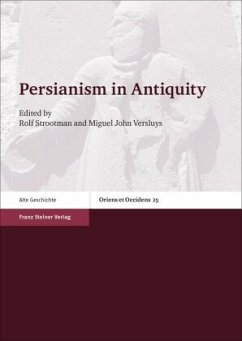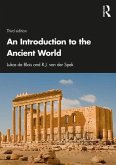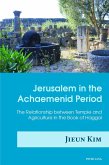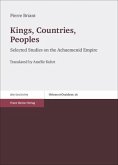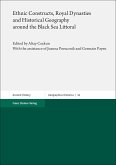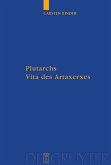The socio-political and cultural memory of the Achaemenid (Persian) Empire played a very important role in Antiquity and later ages. This book is the first to systematically chart these multiform ideas and associations over time and to define them in relation to one another, as Persianism. Hellenistic kings, Parthian monarchs, Romans and Sasanians: they all made a lot of meaning through the evolving concept of "Persia", as the twenty-one papers in this rich volume illustrate at length.
Persianism underlies the notion of an East-West dichotomy that still pervades modern political rhetoric. In Antiquity and beyond, however, it also functioned in rather different ways, sometimes even as an alternative to Hellenism.
Persianism underlies the notion of an East-West dichotomy that still pervades modern political rhetoric. In Antiquity and beyond, however, it also functioned in rather different ways, sometimes even as an alternative to Hellenism.
"...a ground-breaking overview of why Persia was such an important symbol to construct meaning with and of providing food for thought about the concepts of 'Greece' or 'Egypt' to a wider scholarly audience, the theme of the interrelation of cultures, as the editors point out, being of particular relevance to the concerns of our contemporary world." Claire Gruzelier Classics For All, 25.04.2017
